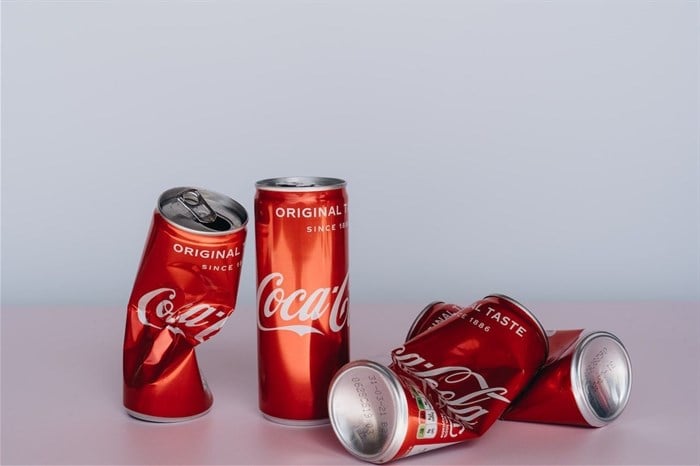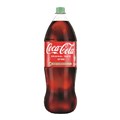The Coca-Cola Company is throwing its weight behind the circular economy by adopting improvements to packaging options and design to ensure a sustainable future.

Image source: alleksana from
PexelsThe company uses multiple packaging formats, from glass and PET bottles to aluminium cans and refillable packaging - most of which are recyclable materials and therefore play a role in the circular economy.
Creating a circular economy for packaging materials requires 'designing out' waste by harnessing the inherent value of recyclable materials. By 2025, innovative packaging design will make 100% of Coca-Cola's packaging globally recyclable, and by 2030, at least 50% recycled material will be used. In addition, by 2030, at least 25% of its beverages sold globally by volume will be in refillable/returnable glass or plastic bottles or reusable fountain dispensers.
World Without Waste
This is one of the reasons why, in 2018, Coca-Cola launched an ambitious strategy called 'World Without Waste' to drive systemic change, focusing on the circular economy for packaging.
World Without Waste is a global sustainable packaging platform focused on three measurable and interrelated pillars: collection, design and partnership. Each of these pillars is supported by additional goals such as designing packaging that is reusable and recyclable. Achieving a world without waste requires business, government, and civil society partners to unite people in support of a healthy, zero-waste environment and a circular economy.
For example, Coca-Cola has partnered with Petco, producer responsibility organisation NPC in South Africa, creating economic opportunities by supporting the collection and recycling sector to increase collection efforts and divert packaging waste from landfill.
Collaborations
Several spin-off collaborations have emerged, most notably with the launch of Project Up, which is driven by Petco, has BanQu as a partner and is funded by the Coca-Cola Foundation. BanQu uses blockchain technology to create a digital record of recyclables, allowing buy-back centres to digitally track the types of materials coming in and the value of those materials to their business. At the same time, waste collectors have digital proof of the revenue they receive for their materials. Petco can use the increased insight gained from creating a national digital record of recyclables to track volumes and work towards waste picker integration.
According to the Waste Pickers Association, South Africa has approximately 90,000 informal waste pickers, who play an increasingly important role in waste management. Partnerships with informal collectors are essential to the waste management chain, and consumers can play their part in helping people turn "trash into cash" and help create a greener future.
100% recycling rate aim
Coca-Cola aims to collect and recycle one bottle or can for each one it sells by 2030. At the same time, the company encourages consumers to remember the three "Rs" that make the circular economy possible: Reuse, Refill and Reduce.
Petco's recently published 2022 Annual Report identifies the collection and recycling rates for the products its members have registered with the organisation. The report shows that 121,369 tonnes of packaging was placed on the market by Petco members in 2022. Of this, 83,967 tonnes (69%) of post-consumer packaging were collected for recycling, and 79,571 tonnes were recycled – achieving a 66% recycling rate.
Refillable bottles
In South Africa, Coca-Cola Beverages South Africa (CCBSA) introduced a 2L refillable PET bottle in the Eastern Cape, Limpopo, North West, Mpumalanga, parts of the Free State and most recently in KwaZulu-Natal. These refillable bottles help to conserve landfill space, reduce the use of virgin PET and save consumers money.
Bottling partner Coca-Cola Peninsula Beverages (CCPB) in the Western Cape has been using returnable packaging since the introduction of the 1.5L pack in 1992. It has also invested in a returnable glass bottle (RGB) line and introduced 300ml and 500ml bottles. CCPB produces 11 flavours in 1.5l returnable/refillable PET bottles, and RGB packs are available in various flavours.
According to the CCBSA, consumers are switching to refillable bottles, going to the local spaza shop, collecting the refund and showing that they, too, share the vision of a World Without Waste. This is a sure sign that consumer engagement is critical to making a difference and ensuring a greener future for all.










































